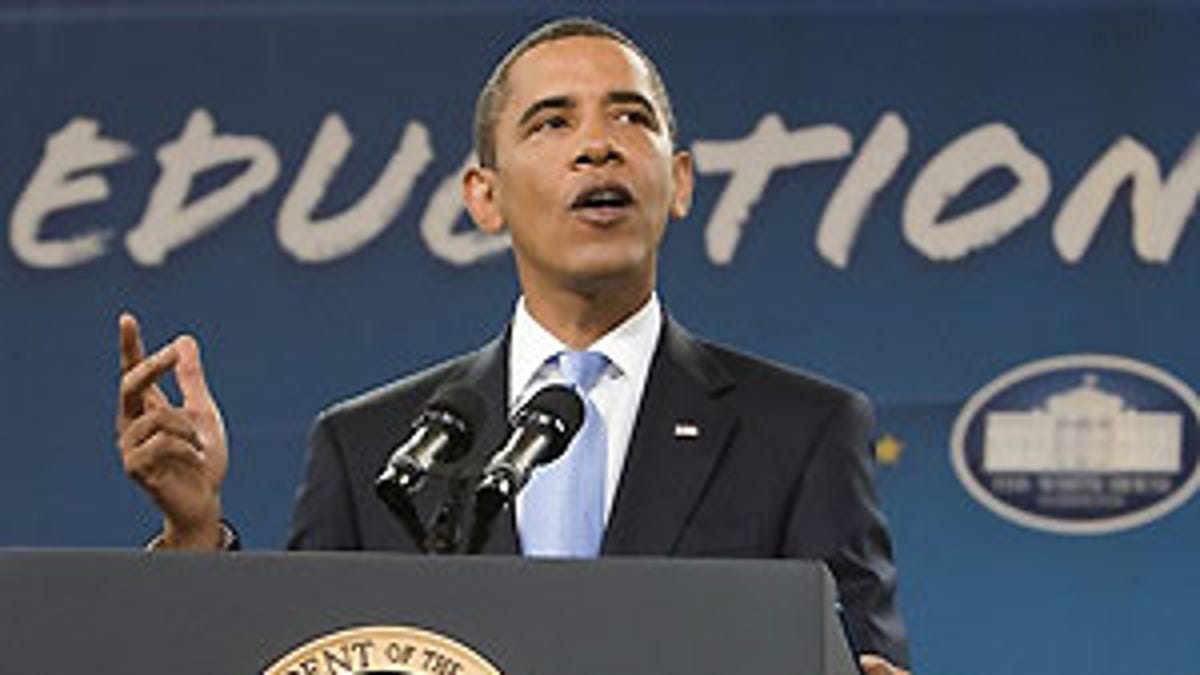
Reuters
There was nothing, per se, wrong with the text of President Obama’s Tuesday address to the nation’s school children. It was, as speeches go, fairly standard boilerplate, combing bits of Horatio Algerism with the standard “stay in school” rhetoric with just a pinch of Robert Fulghum’s “All I Really Needed to Know I Learned in Kindergarten,” added for flavor. It was, nevertheless, controversial, but not because of anything the president said.
The seeds of the controversy were sown in the pre-speech release of a two-page guide produced by the Teaching Ambassador Fellows at the U.S. Department of Education that suggested ways to incorporate the remarks into the day’s lessons, to get America’s schoolchildren to think about what the president had said and to act in ways consistent with his message to them.
The guide read as if the ambassadors who wrote it had been sent from Pyongyang.
“As the President speaks, teachers can ask students to write down key ideas or phrases that are important or personally meaningful,” the guide said before it was revised as a result of the hoopla. “As the President speaks…” sounds an awful lot like “All eyes on the leader, boys and girls.” And the suggestion that students be asked to consider “What is the President asking me to do?” is a far cry from “Ask not what your country can do for you.”
Perhaps it is just paranoia on the part of those who do not care for Obama’s brand of politics to react negatively to the idea that he would speak to the nation’s schoolchildren on their first day back in the classroom. Nonetheless, it is someone ominous to suggest, as the teaching guide did, that students be asked to “Write letters to themselves about what they can do to help the President,” followed by the idea that the letters be “collected and redistributed at an appropriate later date by the teacher to make students accountable to their goals.” The idea that children would be held “accountable” to the goals they set for themselves after hearing a speech by the president is more European than American. Given the outcry over the guide, it is safe to say most of America agrees, which is probably why the Department of Education pulled them back for retooling once they became public.
It is, I submit, silly to keep children home from school in order to prevent their exposure to Obama’s remarks. It is, nonetheless, understandable that some parents are concerned.
In his landmark novel "1984," writer George Orwell wrote of one man’s struggle to find personal freedom while living in the tyrannical state of Oceania. Central to the story is the state’s efforts to force the man, Winston Smith, to embrace the loving paternalism of Oceania’s leader, known only as “Big Brother.” The way Obama is sometimes presented to the public by those who purport to be his political allies and his friends smacks of big brotherism.
There are the iconic, post-modern campaign posters and buttons and the videos scattered all over YouTube, especially the one with the little children wearing the “HOPE” T-shirts singing a pro-Obama song. The entire Obama campaign and his first days in office were presented as an exercise in something nearing idol worship. From his anointing as “the One” by Oprah Winfrey to the pledge campaign coordinated by actors Ashton Kutcher and Demi Moore, dominant cultural figures are offering their support and allegiance, not to the Constitution or the nation or to what Obama is trying to do but to the man himself.
It is though a conscious decision has been made to present the man and the plan as one entity. But in America, that’s not the way we roll. So the suspicions some parents seem to harbor, even if they are not justified, are understandable and, one might suggest, an excusable if not natural reaction.
Peter Roff is a contributing editor to U.S. News & World Report. He is a former senior political editor for United Press International.
